INTRODUCTION
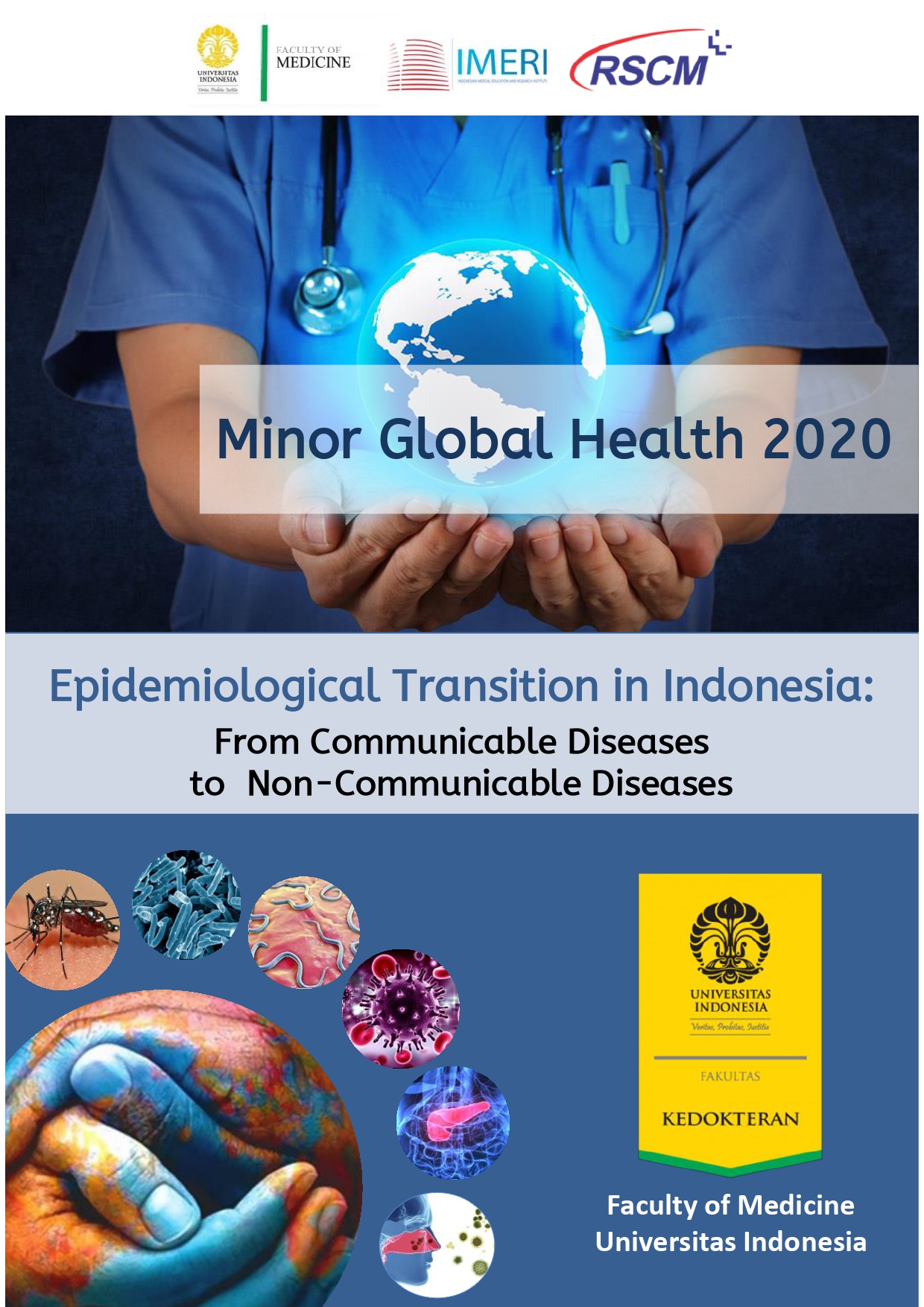
Accordingly, there are many tropical infectious disease to be found, including mosquito-borne infection, helminth infection and neglected tropical disease.
Moreover, the rapid wave of urbanization in the country is resulting in the increasing of the prevalence of non-communicable disease, including type 2 diabetes and cardiovascular disease.
This module aims to help student learns variety of communicable disease and non- communicable disease, observing directly the center for each diseases and learn a novel approach for the inter-relationship between both diseases.
OBJECTIVES
- To understand the communicable disease (CD) in tropical country
- To understand concept of urbanization and its relation to the transition from CD to non-communicable disease (NCD)
GENERAL TOPICS
- Overview of Health in Indonesia Mosquito-borne infection
- Soil-transmitted Helminth Infection Neglected Tropical Disease
- Mycobacterium Infection: Tuberculosis and Leprosy
- HIV/AIDs
- Diabetes Mellitus
- Child Nutrition Problem: Stunting and Obesity
DEPARTMENTS
- Department of Internal Medicine
- Division of Tropical Infection
- Division of Endocrinology-Metabolism
- Division of Allergy and Immunology
- Department of Clinical Microbiology
- Department of Parasitology
- Department of Dermato-venerology
- Department of Paediatrics
PROGRAM OVERVIEW
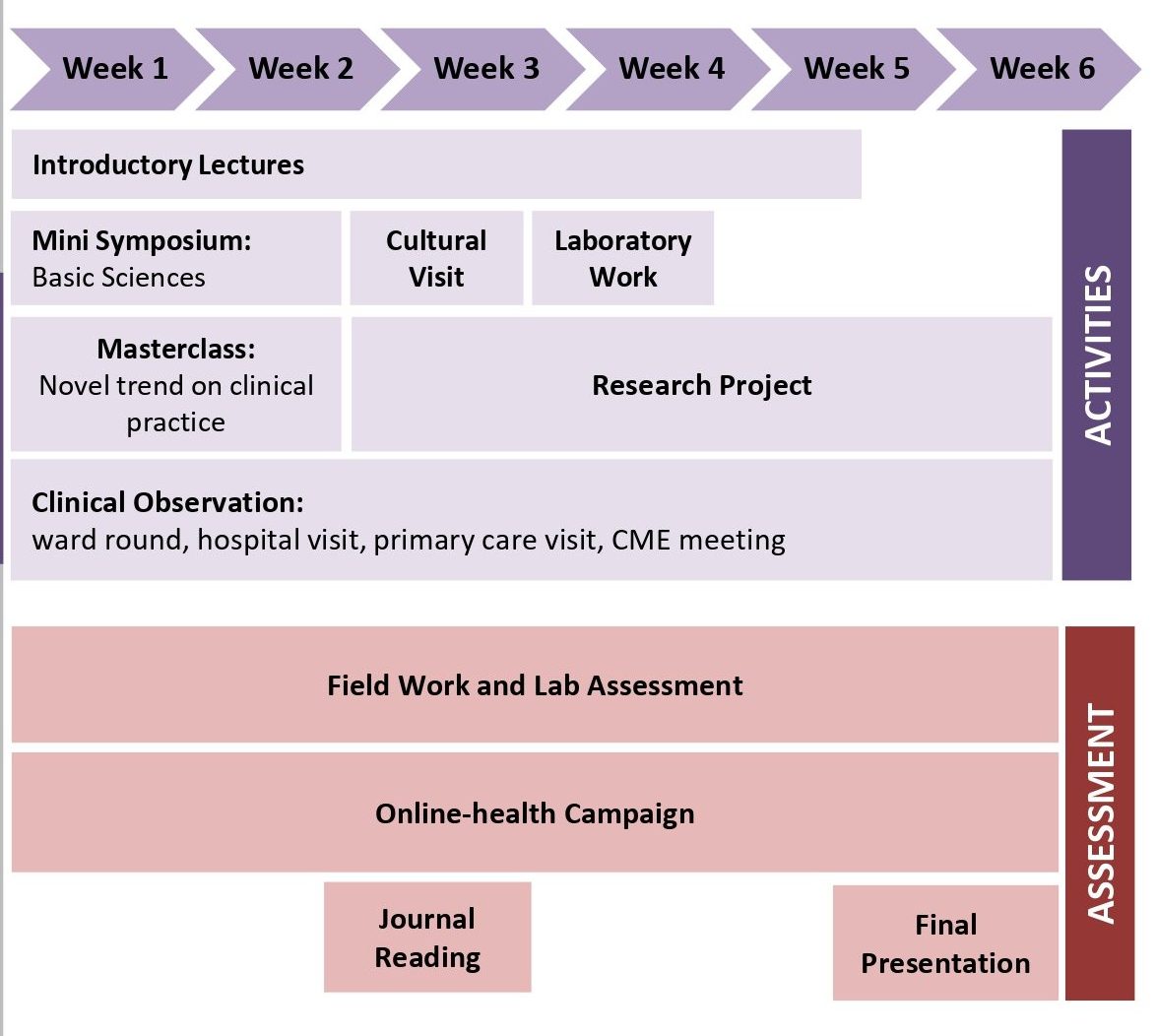
LECTURES
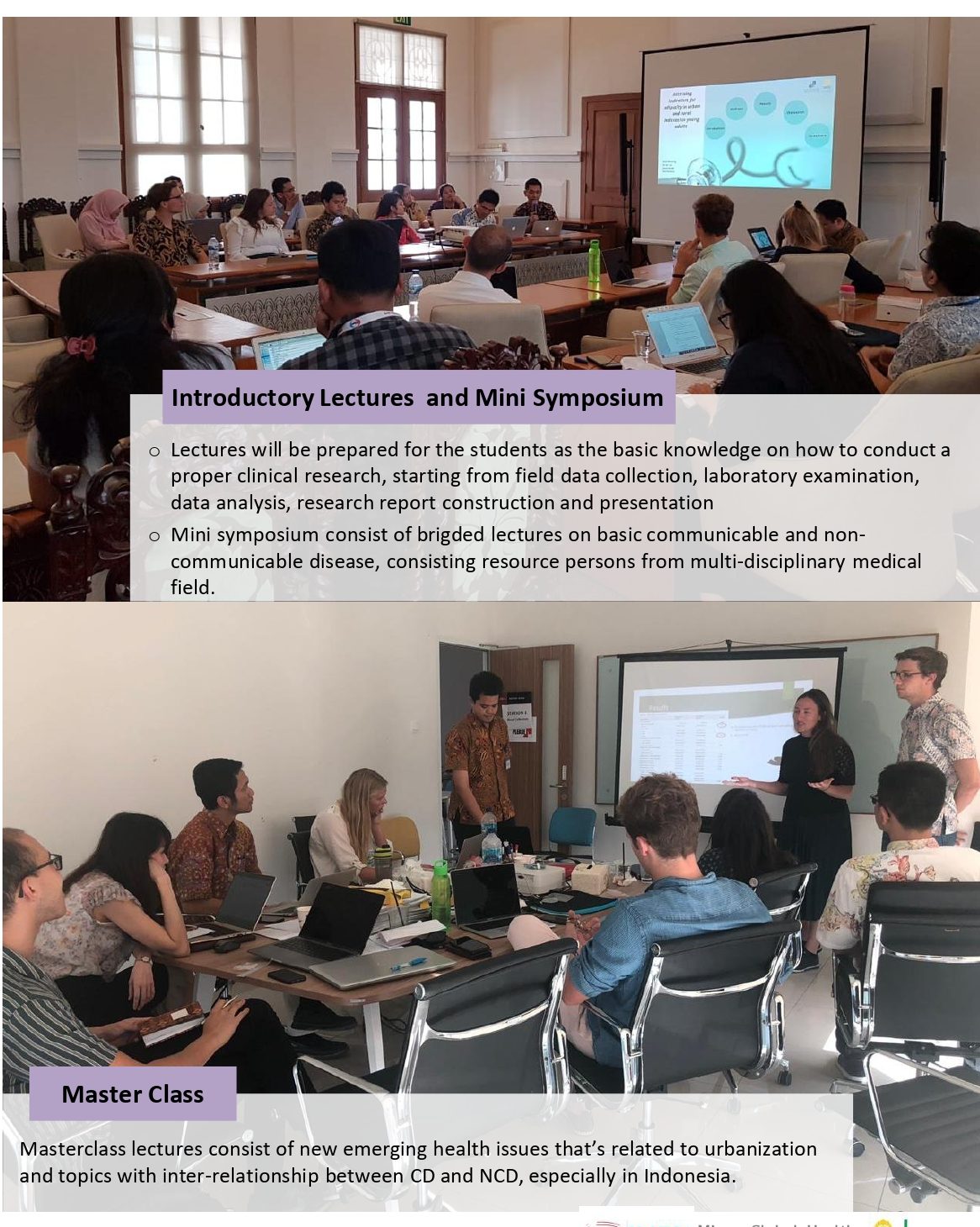
CLINICAL OBSERVATION
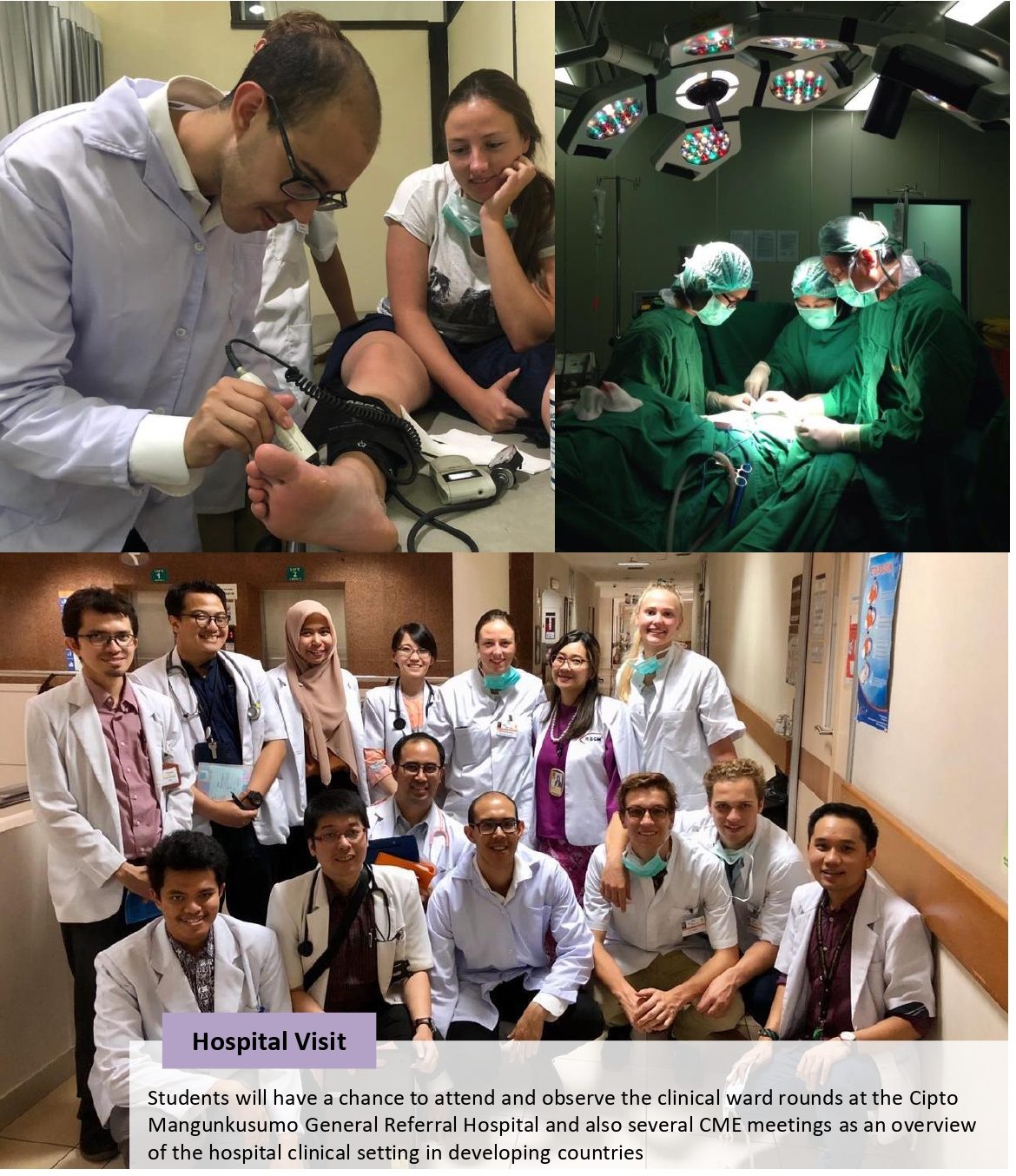
HOSPITALS
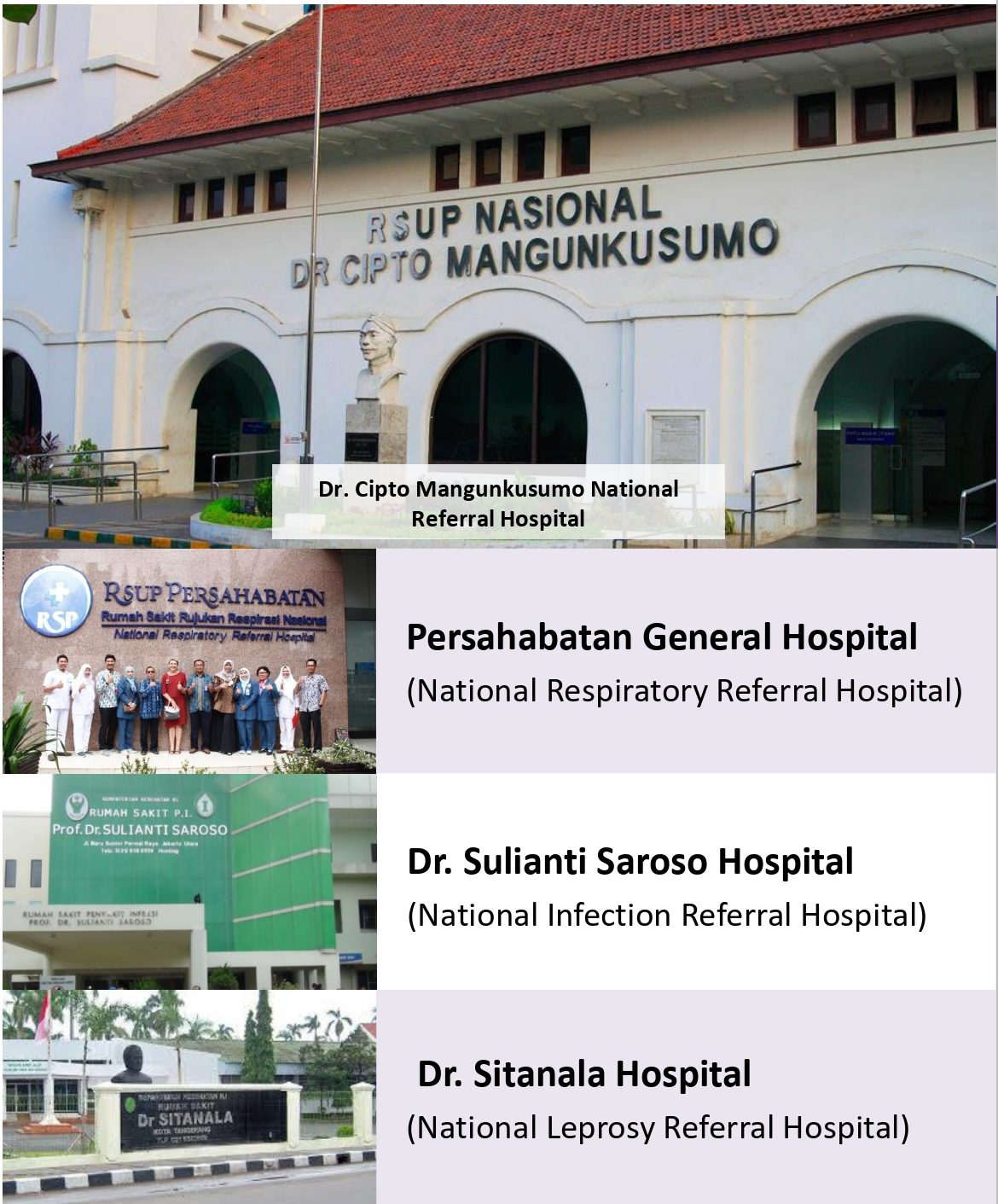
RESEARCH PROJECT
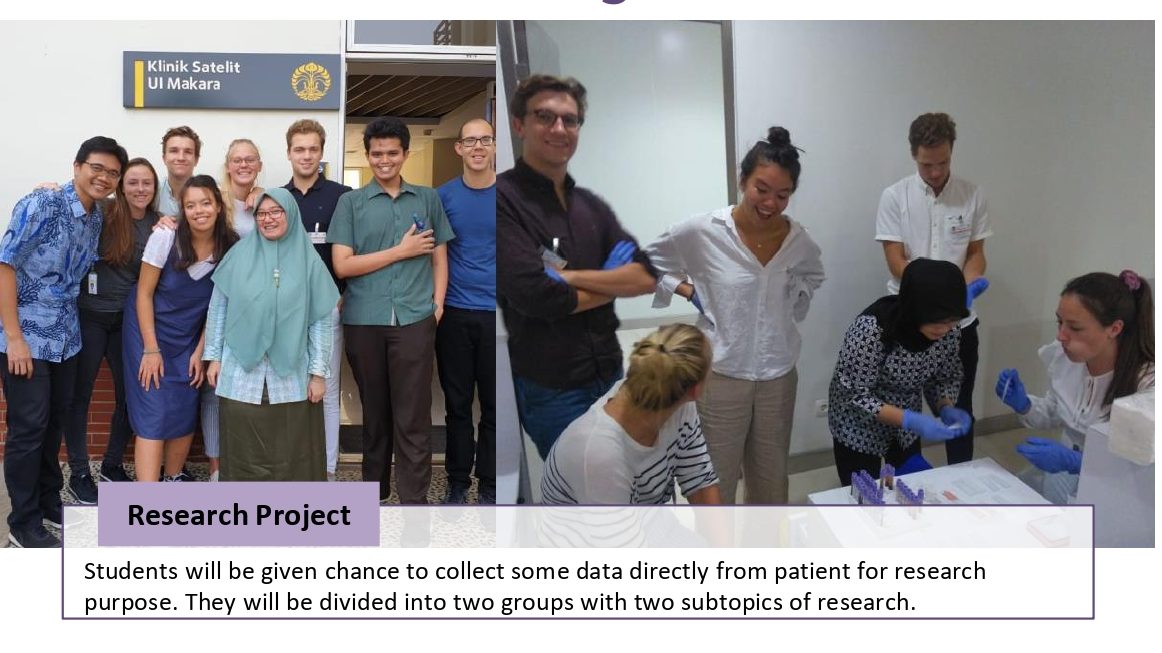
LABORATORY WORK
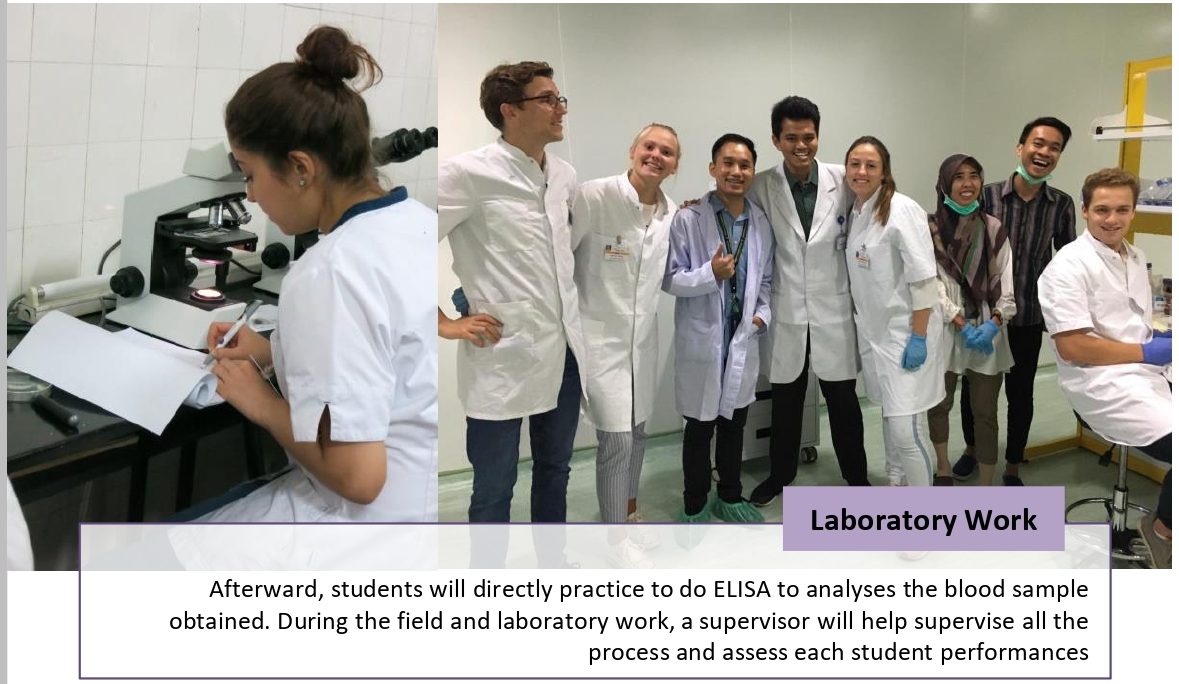
REQUIREMENTS
Students
- 3rd year medical student, who have successfully completed all two years program
- Good English skill (TOEFL minimum score of 550, IELTS minimum score of 6.5, TOEIC LR 700)
- Bahasa Indonesia is a preferred additional skill, especially for clinical modules
Documents
- Application form
- Written recommendation from the Dean o Motivation letter
- Recent photo (passport size)
- Copy of valid passport
- a copy of international student hea
FEES & REGULATIONS
Fees
- Admission fee USD 100
- Tuition fee USD 150/week
- Bench fee for elective research: USD 500-1000
- The fee stated above does not include accommodation, meal, insurance and medical service
- The living cost estimation USD 400/month/person
Regulations
- Participant should be in Jakarta before the program started and report to International Relation Office Faculty of Medicine Universitas Indonesia before and after finishing the program
- During the clinical experience, participant’s role will be as an observer. In certain cases, interacting with patient to do examination will be permitted under supervision of attending staff in charge
- Participants must fully attend all the programs.
- Participants must be well-groomed and wear appropriate clothes according to hospital standard, especially in clinical activity
- Male students must wear collared shirts and formal pants, no blue jeans
- Female students must dress modestly and avoid low-cut or bare the midriff tops. Short skirts above knees are also not allowed
- Participants must wear shoes
- Please bring your lab coat, especially for lab work and clinical activity
- Participants will be given a certificate of completion at the end of the program
SCHEDULES
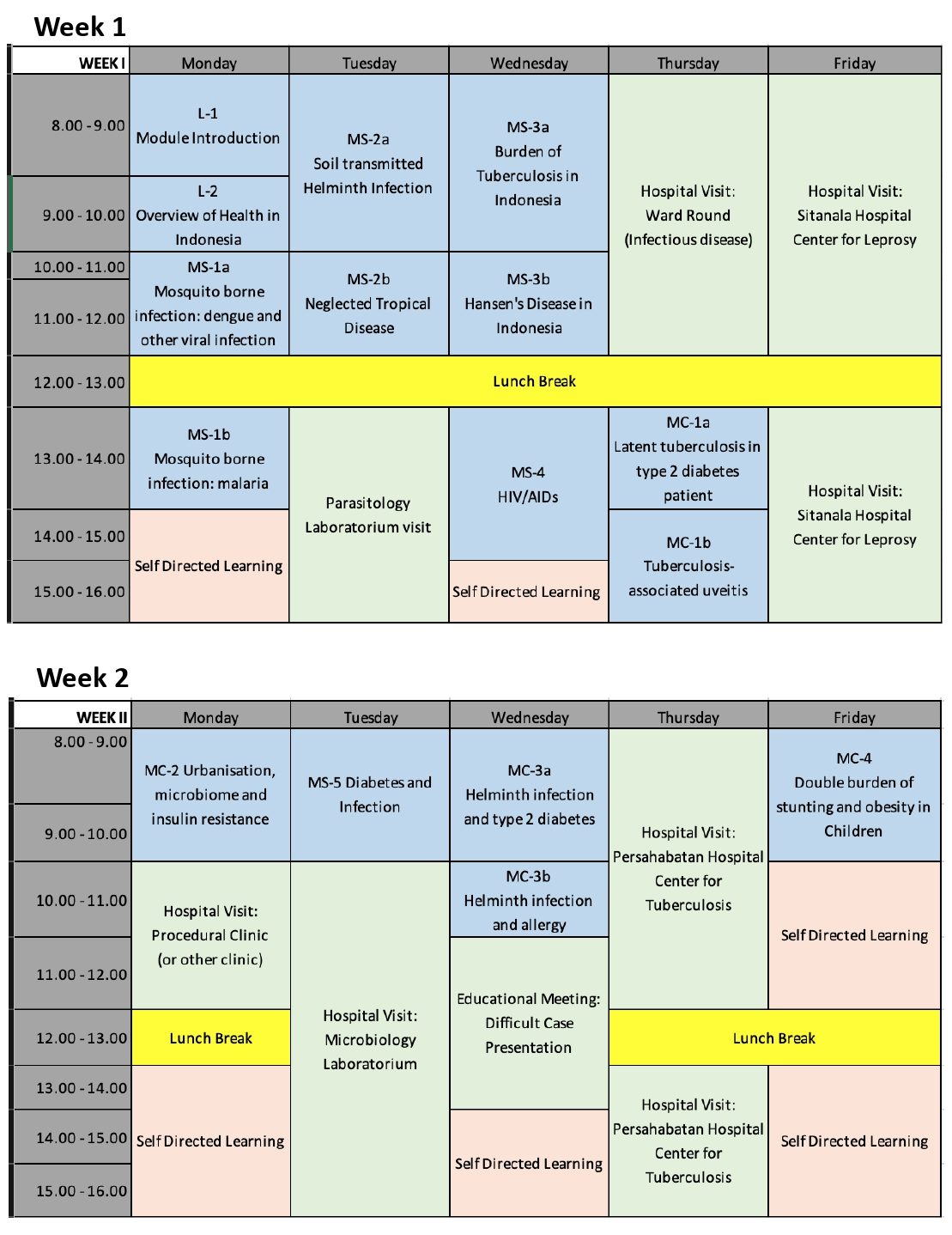
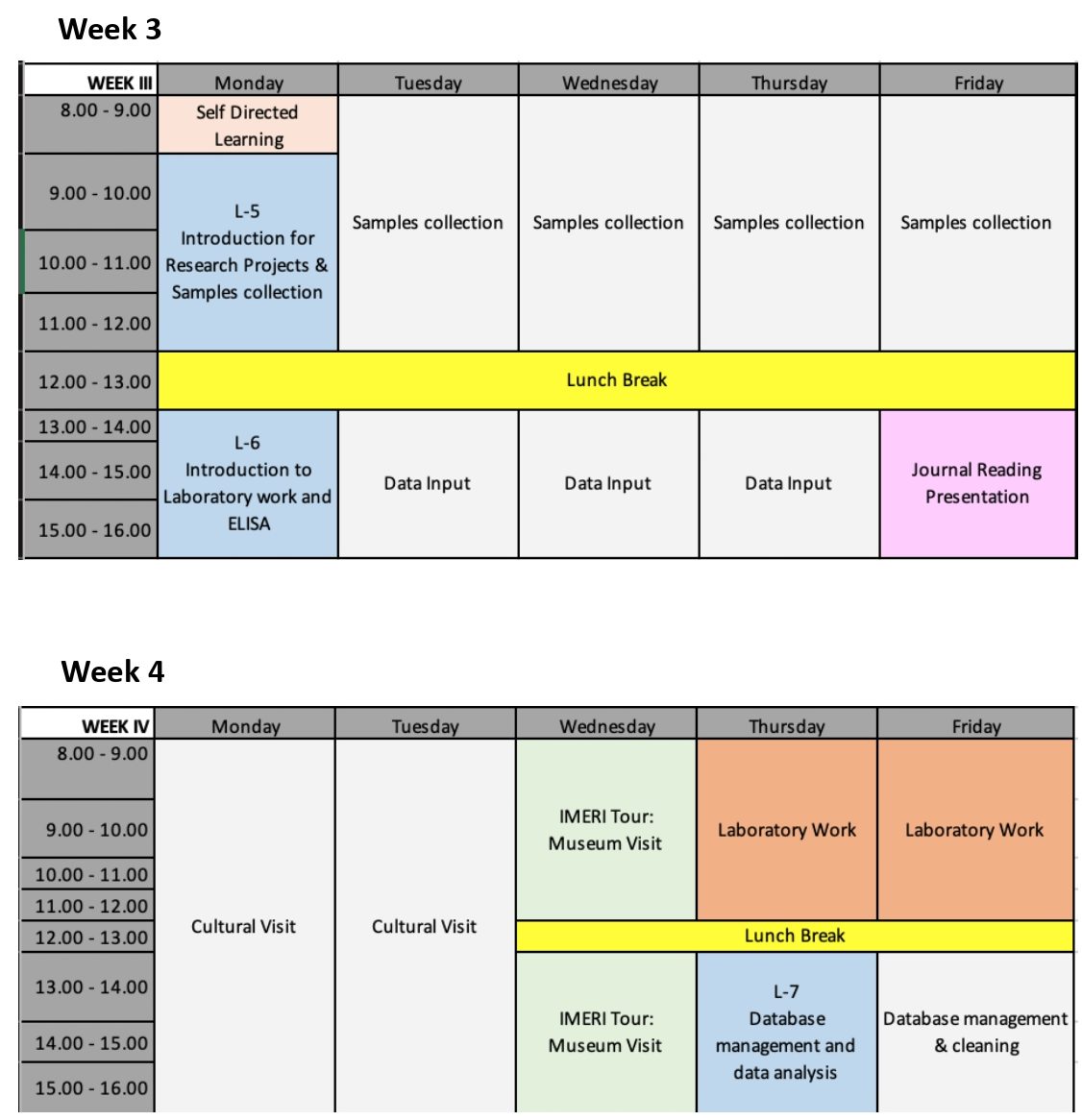
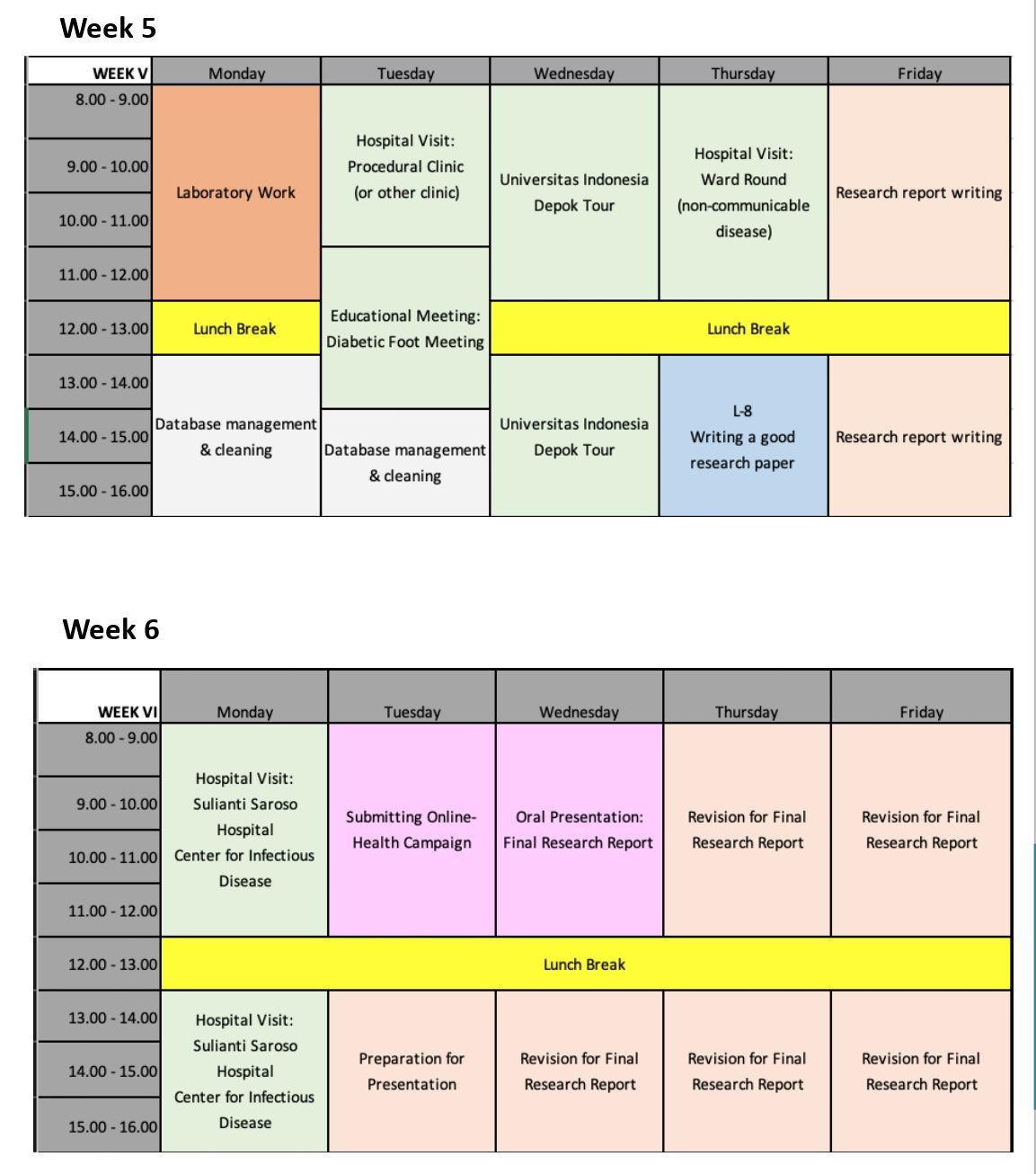
DOCUMENTATION
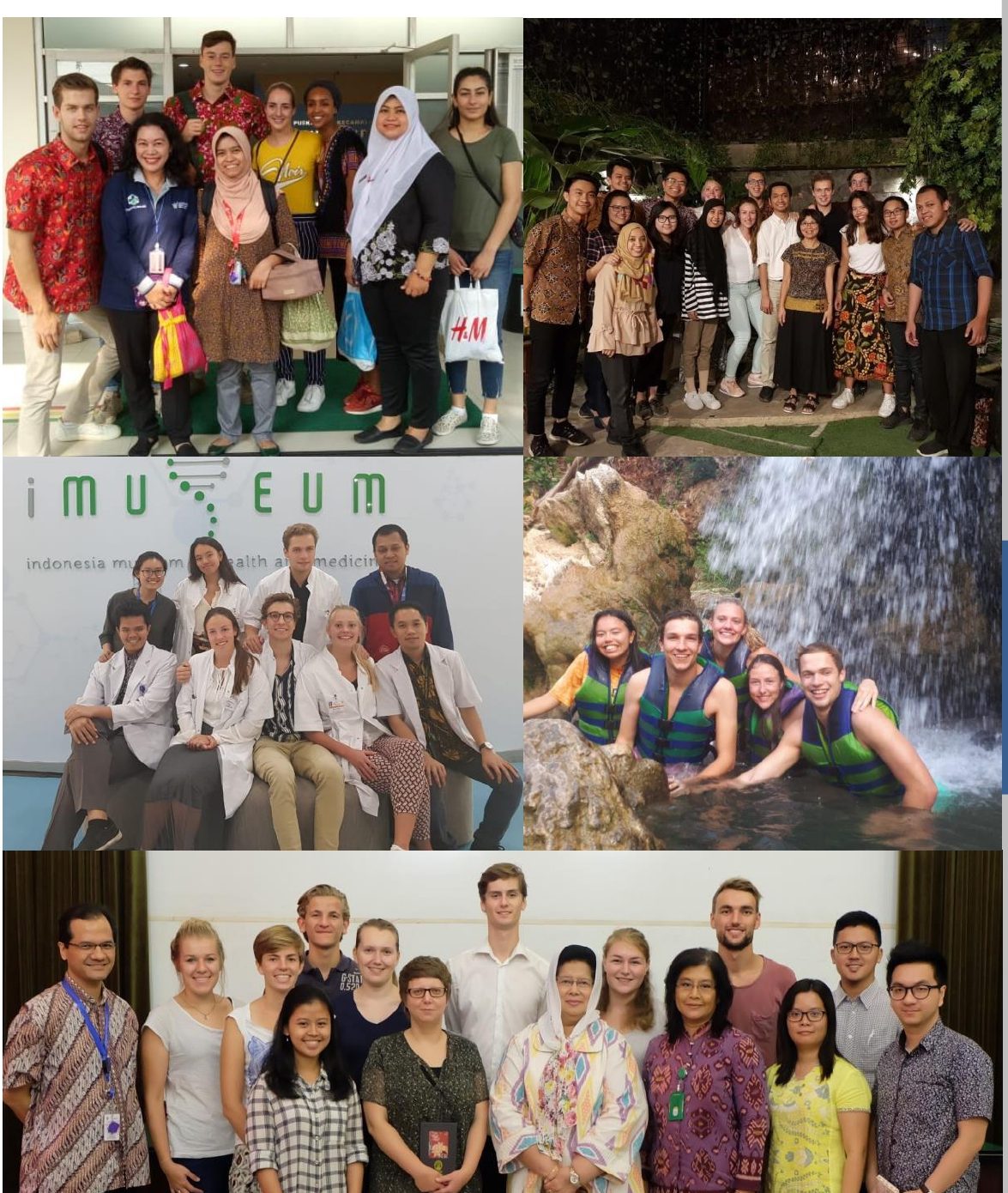
For further information: download our booklet below
